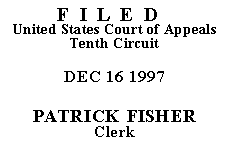

|
UNITED STATES OF AMERICA, |
|
The district court sentenced Francisco Maciel-Sedano to 70 months imprisonment for unlawfully reentering the United States after a prior deportation in violation of 8 U.S.C. § 1326. Maciel-Sedano appeals the sentence claiming that the district court improperly enhanced his base offense level by sixteen points pursuant to § 1326(b)(2) and U.S.S.G. § 2L1.2(b)(2) because the reentry was subsequent to the conviction of an aggravated felony. This court exercises jurisdiction pursuant to 28 U.S.C. § 1291 and 18 U.S.C. § 3742(a) and affirms.
The facts relevant to the determination of this appeal are quite limited. On April 23, 1997, Maciel-Sedano was indicted on one count of reentry by a deported alien in violation of 8 U.S.C. § 1326. That same day, the United States filed a Notice of Sentencing Enhancement, asserting that Maciel-Sedano was subject to the enhanced penalties set out in § 1326(b)(2)(1) and U.S.S.G. § 2L1.2(b)(1).(2) The grounds for the sentencing enhancement set forth in the Notice were: "Possession of a controlled substance in Fourth Judicial District Court, Utah County, Utah (Case #951400627) using the name of Francisco S. Maciel. Judgment & Commitment filed on or about December 8, 1995." Maciel-Sedano objected to the sentencing enhancement on the grounds that a conviction for possession of a controlled substance did not constitute an aggravated felony. The district court rejected the objection and sentenced Maciel-Sedano to a term of 70 months based on the sixteen level enhancement set out in § 2L1.2(b)(1).
This court can resolve Maciel-Sedano's argument in short order. Maciel-Sedano first argues that a mere possession conviction, although clearly a felony under both Utah and federal law, does not meet the definition of "aggravated felony" set out in § 1326 and the Sentencing Guidelines. This court has, however, specifically rejected the exact argument advanced by Maciel-Sedano. See United States v. Cabrera-Sosa, 81 F.3d 998, 999-1000 (10th Cir.), cert. denied, 117 S. Ct. 218 (1996). In an effort to distinguish Cabrera-Sosa, Maciel-Sedano argues that the panel in Cabrera-Sosa failed to address the 1994 amendments to the definition of aggravated felony contained in 8 U.S.C. § 1101(a)(43) and that those amendments significantly narrowed the definition of aggravated felony. This court, however, just recently again rejected the exact argument advanced by Maciel-Sedano. See United States v. Valenzuela-Escalante, No. 96-4147, 1997 WL 751586 (10th Cir. Dec. 5, 1997). In fact, in stark contrast to the arguments presented by Maciel-Sedano, the Valenzuela-Escalante panel noted that the 1994 amendments actually expanded the definition of "aggravated felony." See id. at *3.
In light of this court's decisions in Cabrera-Sosa and Valenzuela-Escalante, it is clear that the district court properly applied the § 2L1.2(b)(1)(a) sixteen-level enhancement to Maciel-Sedano's base offense level. Accordingly, the judgment of the United States District Court for the District of Utah is hereby AFFIRMED.
ENTERED FOR THE COURT,
Michael R. Murphy
Circuit Judge
*. This order and judgment is not binding precedent, except under the doctrines of law of the case, res judicata and collateral estoppel. The court generally disfavors the citation of orders and judgments; nevertheless, an order and judgment may be cited under the terms and conditions of 10th Cir. R. 36.3.
1.Although § 1326(a) provides for a term of imprisonment of no more than two years for reentry after a prior deportation, § 1326(b) provides an enhanced penalty when the reentry was subsequent to a conviction of an "aggravated felony." 8 U.S.C. § 1326(b) (providing for a prison term of not more than 20 years when the reentry follows a conviction for an aggravated felony).
2.U.S.S.G. § 2L1.2(b)(1)(A) provides that a defendant's base offense level be increased by 16 levels if the reentry followed a conviction for an aggravated felony.